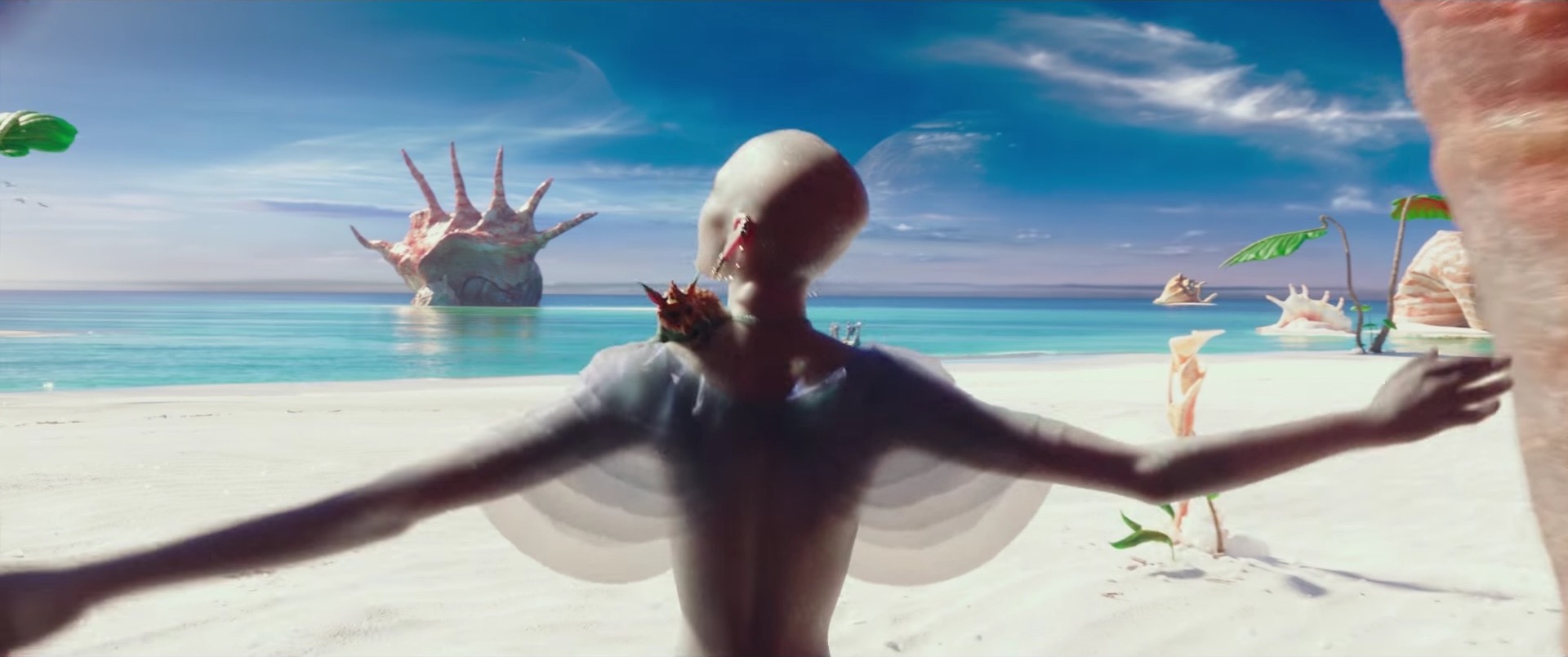
Valerian and the City of a Thousand Planets introduces us to 28th century special operatives Valerian (Dane DeHaan) and Laureline (Cara Delevingne) who work together to enforce the law in the glaxy while navigating their complicated feelings for each other. The partners embark on another mission to recover stolen property but soon find themselves embroiled in a conflict emanating from a long buried military scandal that threatens to destroy a secretive race of aliens long thought to be dead.
Valerian is truly a master class from director Luc Besson in science fiction world building. The new planets and species that we are introduced to really harken back to the innovation I felt watching peak Star Wars, which I do not say lightly. The worlds we travel to and their inhabitants have that fresh, adventurous feel that great science-fiction films give you when exploring the expanse of space. Each locale and species has its own unique feel and look, all of which are strengthened by the film’s spectacular visual effects and cinematography. Valerian’s visuals are some of the best that the genre has ever seen and may be worth the price of a ticket alone. The effects are wide-ranging, colorful, and futuristic but still look as real as is possible. Valerian is also a film that is not shot specifically on 3D cameras that is still worth the price of a 3D ticket. The look of the film sets a high bar.
The film’s underlying theme is an interesting one. It is timely in this current era of “resistance” toward the practices and demands of historically respected institutions and positions and boils down to people using their better judgement and discernment even in the face of tradition, protocol, and duty. In the film’s climax, we see the fallout of both potential paths; when someone goes against what protocol and tradition calls for, and when someone follows it, even against their own instincts. At Laureline’s insistence, Valerian violates protocol and returns to the people of Mul their Mul converter so that they may rebuild their destroyed planet once more. Despite Valerian’s knowledge of the military’s past crime of destroying the planet of Mul, Valerian was hesitant to violate protocol and return to them what was rightfully theirs, even if it was morally correct.
General Okto-Bar (Sam Spruell) is faced with a similar decision but goes in the opposite direction. Even after coming to terms with the now obvious villainy of Commander Arun Filitt (Clive Owen), the General still follows procedure and lets him make the call on whether or not to move forward with an attack against the Mul, giving The Commander the opening to attack both the Mul AND the army. Here, we see the flip side of following orders even against your better judgement and the peril that it can bring. This decision about following orders and laws, even if they are morally incorrect at their core is something that our world has struggled with for ages. It was interesting to see it examined here. The film also makes a moralistic point about collateral damage during war and how empires often fail to take into account how their actions affect innocent parties. The Mul are a peaceful people who have their way of life and entire planet destroyed in the fallout of a war where those in power failed to ensure that innocents would be out of harm’s way. The coverup of this atrocity leads to the events at the center of this film. Valerian explores this dynamic in an interesting and appropriate way.
While Valerian has a lot going for it, the lack of a truly dynamic and charismatic lead actor prevent the film from reaching its full potential and being truly great. DeHaan is a young actor on the rise but he is miscast here. DeHaan’s bread and butter will be as a villain or brooding, anti-hero type.. But Valerian’s story calls for a charming leading man fit for an action adventure; a young Harrison Ford/Chris Pratt type, which is not a fit for DeHaan. Cara Delevingne has been much maligned for her acting in the past but she does a more than serviceable job here. However, her deficiencies as a model transitioning to acting are highlighted opposite an actor that does not command the screen as is needed in this film. The story and plot as written demand a lead actor that serves as an anchor for everything else on screen. Without that, the other things that work such as Delevingne do not shine as brightly and are hurt as a byproduct. Rihanna also performs well in her bit role as the shape-shifting alien Bubble. Her appearance is short lived and I felt as if her exit did not have the emotional resonance it was designed to due to her short amount of screen time. Clive Owen also shines as The Commander, even though his villainous turn could be seen coming not too long after he first appears. Owen is far and away the best actor on screen, which isn’t surprising given his pedigree.
Valerian is a good time, visually stunning, and creative in the universe it establishes; setting a template for other modern space blockbusters to follow. Despite its good aspects, you’re left feeling as if it left some greatness on the table due to whom it chose to lead the film from an acting standpoint. All in all, it’s good option if you’re interesting in seeing an entertaining film that creates a unique viewing experience on the big screen that may not be able to be replicated at home.
Image: STX Films

